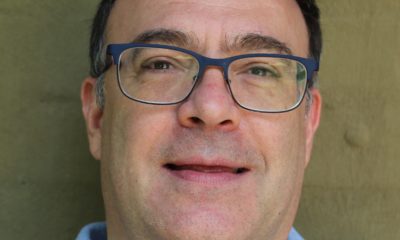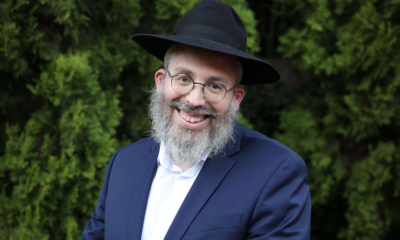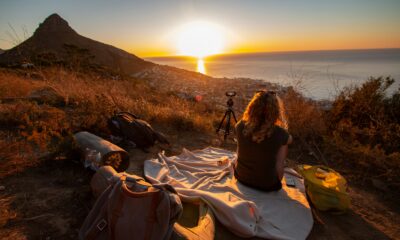
SA News

Good governance, diversity, community – it’s all in a day’s work for these politicians
Many South Africans present themselves as change-makers in local government. ‘SA Jewish Report’ journalist Saul Kamionsky speaks to a number of candidates to find out why readers should vote for them. This is the first of a two-part series.
Paul Jacobson
Freedom Front Plus
Cape Town: Ward 54 (which includes Camps Bay, Clifton, and Sea Point)
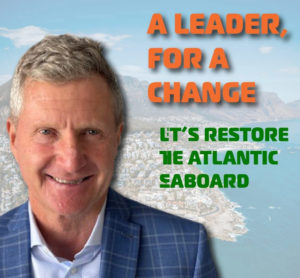
Before entering politics, Paul Jacobson was a community activist, dealing with matters affecting his area – Sea Point through to Camps Bay. He chaired many meetings on behalf of previous councillors, met regularly with the mayor to discuss solutions to issues, and wrote thousands of messages to various city authorities, national government, and the South African Police Services.
“I orchestrated countless community walks, giving dignity to our area,” says Jacobson. “And I embarked on a massive, irate boycott campaign against the city for lack of service delivery. That was my activation, and the community suggested that I take up a more formal position.”
Out of the nine political parties he met, the Freedom Front Plus (FFP) stood out for him.
“The FFP had the same moral principles as me, was a supporter of Israel and Judaism, and would allow me to express myself without restraint. I was also incredibly impressed that the FFP was representative of the ‘Rainbow Nation’.”
In the FFP’s last meeting to elect a candidate for ward 54 for this year’s municipal elections, those present insisted that Jacobson, a local, take up the position.
He believes people should vote for him because he’s passionate about the ward. “I live in and love this area. I grew up in Camps Bay; I went to Sea Point Boys High. My children are still in Camps Bay, and I’ve got history going back to my grandparents here.”
Even his business, which produces naturally-based nutrition and alternative remedies for dogs and cats, is in Sea Point.
“I’m a businessman, not a politician. The advantage of that is you think out of the box, and come up with alternative ideas, initiatives, to deal with the challenges that we have. Being a type-A individual, I get my teeth stuck into a project and don’t let go until it’s completed.”
After breaking his back in a paragliding accident 20 years ago, he lay in a bed for six months without being able to move his body.
“Every single night, I had faith. I prayed to my G-d, I listened to Andrea Bocelli and Pavarotti, and I imagined my toes moving.”
After four months, he got something to move and, after six years, he has got almost everything to move.
He has served in the Israeli military as a paramedic, and spent 11 years of his life living in the most remote areas of the world – from Tibet and northern Spain to Bolivia and China. “For that, you need to have the utmost respect for people’s cultures, and you’ve got to love human beings, and I do.”
Ten years ago, he formed the Humus, Gherkins Support Group. “As a proud Jew, I set this up to counteract the BDS [Boycott, Divestment, Sanctions] movement, and to encourage our Jewish folk to support Israel by buying Israeli-made products.”
As a Zionist, he takes heart from the FFP standing up for Israel in Parliament recently.
“It’s beautiful that I’ve finally found a wonderful party that will stand up for us Jews, showing our principles are no less worthy than any others, and helping to stop our Jewish people from leaving in hordes.”
What he also finds “absolutely amazing” about the FFP is that many of its officials are advocates, doctors, and academics, and leading up to the elections, it’s ignoring negativity and promoting positivity.
Sidney Anolik
Freedom Front Plus
Johannesburg: Wards 72, 73, and 74
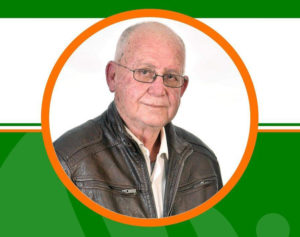
Sidney Anolik was a member of the Democratic Alliance (DA) and the Congress of the People (COPE) before joining the FFP on 2 January 2016, becoming the lone Jew in the party.
“I was a nice Yiddishe boy walking around with a kippah at their meetings,” the former plumber recalls. “But I got plenty of respect.”
Anolik considers the FFP to be a party that’s moving forward, not backwards. “Plus, it would stand by all its ideals as it wasn’t hungry for votes,” he says.
What also appealed to Anolik was the FFP seeing the minority vote as just as important as the majority vote.
“The FFP protects the rights of minorities, such as Jews, Afrikaners, Portuguese, Italians, and Greeks. By worrying about only affirmative action and BEE [black economic empowerment], you are saying, ‘bugger you minorities’, and the principle of employing the best person for the job is superseded by colour. The FFP works completely differently.”
First, Anolik says the FFP doesn’t ask the Jewish community for money. “Let’s prove ourselves to you and if we do, then you can donate to us. This policy was a bit of an eye-opener for me.”
In addition, Anolik stresses that the FFP is a centre-to-right-wing party that believes in self-determination, economic freedom, lowering taxes, and creating jobs.
“We also believe that the taxes coming from households and businesses in each ward should go towards that ward and fixing up the problems there. We believe that rates and taxes mustn’t be paid by pensioners whose property is worth a certain value. We believe also in smaller municipalities. We believe that Joburg should be on its own. Randburg and Sandton should have their own councils like we used to have in the old days before 1999.”
Anolik now serves as the party’s head of minority desk, a position established in 2019 to look after, protect, and help minority groups.
He believes people should vote for him because he’s a “people person” who lives in the community. “I know where there are potholes and where there is blocked sewage. People phone me for help and the same day, their problem is sorted out.”
He also promises to close illegal businesses. “All of us are scared to drive down Louis Botha Avenue because of all the illegal drug houses, whore houses, and shebeens.”
According to Anolik, the FFP hopes the African National Congress (ANC) will get less than 50% of the vote in the upcoming municipal elections. “If that happens, there will be a coalition, and the coalition will depend on us. If we go into a collation, we’re not just going to do what the other party says. We’ll do what’s right.”
Politics aside, Anolik is a nature-lover whose pride and joy is his Facebook page, “Magnificent Animals and Nature from all over the World”. He has spent at least 30 years working with the Jewish community.
“For many years, I provided counselling on alcohol and drugs for the Jewish community, and I serve them before anybody else. At the FFP, we support Israel 100%. We say Israel is an independent country and Jerusalem is the undivided capital. The West Bank belongs to Israel, and Jordan is the capital for Palestinians.”
Errol Anstey
Democratic Alliance
Only on the PR ballot
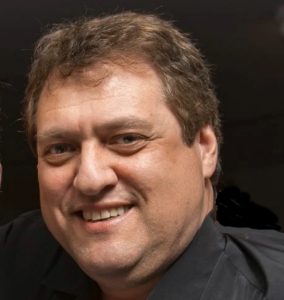
Since entering politics as a 14-year-old in 1974, Errol Anstey has held numerous positions in the Progressive Party, the Progressive Federal Party, the Democratic Party (DP), and the DA.
On top of that, he led a significant turnaround of the South African Habonim Dror youth movement during his 20-year spell as manhig (leader) of the movement. The first South African recipient of the World Zionist Organisation’s Herzl Award in 2004, Anstey also volunteered his proportional representation (PR) seat as a DA member to a newcomer for three months in 2016.
Today, he is the deputy chief whip of the DA in the council, and sits on the DA corporate executive. “I didn’t seek the leadership position,” he says. “With this being my last term, I’m hopefully going to be more involved in training and developing new councillors.”
He believes the DA has the right policies and the vision for a South Africa for all. “Wherever we govern, we govern efficiently and properly. We may make mistakes, but we fix them. And when someone is naughty or gets caught out for corruption, we get rid of them fast.”
He says the “funniest thing” is that when the ANC is at its weakest in its history since 1994, white voters are considering splitting the opposition and voting for small start-up parties.
“But the only viable option is to unite under the DA. This was one of the biggest problems in Zimbabwe. [Robert] Mugabe lasted for so long because the opposition kept splitting.”
Anstey urges voters not to lose sight of the bigger picture by changing their vote when small things upset them. “The point is that if the DA does badly on 1 November, South Africa loses, and another 100 000 people immigrate next year.”
He backs this up by using the DA-run Western Cape as an example.
“The largest investment coming into this country goes to the Western Cape. We are the tourist hub, the film industry hub, the call-centre hub, the insurance hub, and most companies are relocating to the Western Cape. We have a continuous migration of the population up north to Cape Town. Our coastal cities are blooming. Property prices are soaring, and Cape Town has become a desirable place to live. We have the lowest unemployment because the DA government works. By running an efficient government, you create employment, and develop towns and cities. It’s all about well-managed municipalities. If the DA can take control of the five major metros in this country, we can turn South Africa around.”
Asked about the DA’s stance on Israel, Anstey says, “There’s no place for the Israel-Palestinian conflict in South African politics. The DA does everything in his power to make sure that’s not a focus. And, unfortunately, people are introducing the Israel-Palestinian conflict into a local government election, which has nothing to do with the conflict, or has any input or influence on that matter. The DA’s policy on Israel is exactly the same as the South African Zionist Federation and the South African Jewish Board of Deputies. Every statement issued by the DA on this matter is always in line with those organisations’ statements. That’s a fact. If South African Jews want to protect Israel, the best party to do that would be the DA which has experienced the issues under the ANC.”
Paul Smit
Freedom Front Plus
South of Johannesburg: Wards 23 and 54
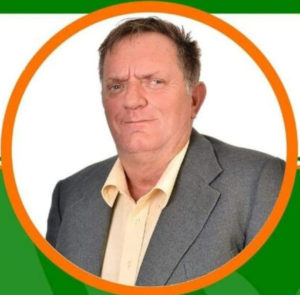
As an 11-year-old in 1977, Paul Smit started helping a political party without knowing anything about its policies.
“Later, I discovered what its policies were, and I got the hell out of there,” he recalls.
He left the political scene for a while before joining the DP in 1999, becoming a councillor the following year. In 2005, he decided to convert to Judaism after seeing the remnants of the Holocaust while taking part in the March of the Living in Poland.
Smit had started to question certain principles of Christianity in 1981. Having initially struggled to find someone willing to facilitate his conversion, he hopes to finalise it in six months’ time.
Although he proudly served as a ward and PR councillor for the DA (formerly the DP) for many years, he started falling out with the party over its stance towards Israel in 2013.
“That was the beginning of the end for me. I just couldn’t forgive them for what they did. But I still stuck it out at the DA, giving my utmost best even if I didn’t agree with everything.”
In 2016, he left the DA as he wasn’t well. Following a three-year break from politics, he joined the FFP because he saw it as a well-run party which fought for minorities.
In spite of being at the FFP for just more than two years, he has been selected as a councillor for the upcoming municipal elections.
“For a first-timer to actually get into an electable position is unusual because they like to keep you back to see what your capacity is. But I think my 15 years in council was partly responsible for them letting me go through.”
Smit says people should vote for him because during his previous spells as a ward councillor, he was active in pushing for law enforcement on environmental issues and fought for people’s rights to correct billing as well as efficient municipal services.
He recalls an example when a traffic light was needed by a school in his ward. “We put up a five-year fight for it, and we got it. Fighting for the benefit of others has always been a passion of mine. And I hate seeing people struggle, especially the elderly.”
One of the highlights of his career was when he got invited to a conference hosted by a South African disabled organisation after a speech he delivered in council on the lack of compassion towards the disabled and elderly in this country.
Smit has always been passionate about this issue. “Society will be judged by how they treat the elderly and the disabled” is one of his favourite statements in council.
“In South Africa’s case, we’ve failed miserably,” he says.
Nicola Jowell
Democratic Alliance
Ward 54
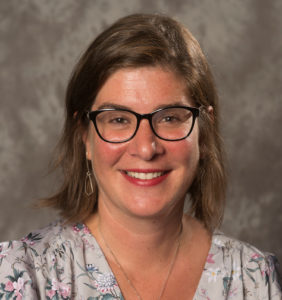
Nicola Jowell lived in an area with several severe crime incidents in 2008. Since then, she has volunteered for community safety work and is an active community activist.
“People were crying out for more policing, saying ‘The South African Police Service must be more’,” she recalls.
Wanting to help look after her fellow community members, Jowell started a neighbourhood watch with two other women in July 2008.
“We grew into a huge neighbourhood watch, consisting of 1 400 members, active patrols, and an extensive licence plate recognition camera network.”
Through her involvement in the neighbourhood watch, she became a member of the Cape Town Community Police Forum executive committee, and was on its board for 10 years in various capacities.
“All of that community, volunteering, and involvement meant I was dealing with civic issues more and more, and engaging with local ward councillors. I also sat on the board of the Ratepayers Association. So, it was almost a natural progression. I never decided to be a politician at any point. It just sort of morphed that way.”
Around 2011, she joined the DA and attended a few meetings.
“The DA has always been the only option that aligns with my personal values. Since it took over in the Western Cape, we’ve seen a marked difference in the running of this province compared to the rest of the country.”
She became more actively involved in the DA in 2016, joining her local branch and chairing it from that point onwards.
“At the end of 2018 and beginning of 2019, I got heavily involved when I stood for ward councillor position in ward 54 during the by-election.”
Her undertaking to the community at that time was to be on the ground and improve service delivery in the ward. “During my term, I’ve done exactly that. I’ve spent time engaging with communities. When there’s an issue, I come out to see and deal with it, bringing city officials to the site. I have been very much hands-on. I’ve focused on communication, which was something the community was crying out for. The good relationships and partnerships I’ve built with the community have galvanised community organisations. I’ve also not been scared to tackle the big issues in an environment where people perceive city councillors as being bound by the status quo.”
Last year, Jowell managed to halt changes to public transport parking rules which she believed would increase traffic and have a negative effect on the built environment in Sea Point.
“This is an indication that I’m not afraid of shying away from the hard issues as well as tackling on-the-ground issues.”
One of her highlights has been to improve the lives of the homeless in her ward. “We now have 15 dedicated field workers engaging with the homeless on a day-to-day basis. That’s something that no other ward in the city has.”
The ideals of one South Africa for all, fair opportunity, and diversity are important to Jowell. “I believe we should be building a society where everybody has equal access to what the person next to them has.”
Tyrell Meyers
Democratic Alliance
Johannesburg: Ward 23 (which comprises Bassonia, Glenanda, Glenvista, Mayfield, Mulbarton, Rispark, and South View).
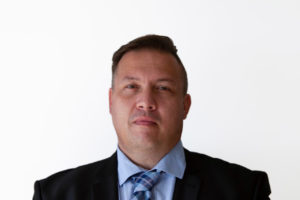
Tyrell Meyers became interested in politics around the age of 12. He remembers that closely following the 1994 elections made him want to understand and learn more.
About 15 years ago, he joined the DA as he knew he could make more of a difference with the support of a strong party.
By the age of 20, he had been elected as a PR councillor.
In 2017, he was elected as chairperson of the Oversight Committee for Transport. He helped to ensure that the M2 highway rehabilitation was completed on time and within budget in 2019.
Together with a South African non-profit organisation, he started early childhood development centres in two locations in Johannesburg.
Meyers stood for ward 124 in the 2016 local government elections, coming in as a PR councillor.
In the upcoming municipal elections, he’s the DA’s candidate for ward 23.
“I think I’ve got the support of my ward in the upcoming election,” he says. “I’m quite confident I’ll secure it with quite a large majority.”
He says people should vote for him because he’s a dedicated public servant with a proven track record.
He gives an example of how he dealt with a burst pipe in Johannesburg.
“Johannesburg Water should come in and replace the pipe, but one has to phone them, saying, ‘Don’t forget to replace the pipe.’ That’s something I shouldn’t need to be doing. But as councillors, you’re actually left with no choice but to step in, take ownership, and be proactive to get them to do the job. That’s something I do very well, and I’m passionate about it. I’ve done well in ward 23 in the time I have been there.”
He has managed to get roads redone, potholes filled, streetlights fixed, trees growing, and facilitated other visible service delivery. “Residents can attest to that,” Meyers says.
One of the highlights of his career in politics has been his time serving as chairperson of the Johannesburg south constituency, which looks after all the wards in the area – namely, wards 23, 54, 55, 56, 57, 124, and 125.
“We’ve made it quite an inclusive constituency which is also more dynamic, driven, active and proactive in its approach. We actually prepare for things far in advance instead of waiting for an election. We’ve brought a lot of teamwork.”
Meyers’ motto has always been about building an inclusive constituency that’s centred on teamwork.
“We’ve got a mix of councillors who come from different backgrounds. We’ve got black and white councillors, we’ve got Muslim and Jewish councillors, we’ve got gay and straight ones. We’ve got all these different types of public representatives and activists. And I believe we’re setting the tone for an ideal diverse South Africa that provides opportunity, freedom, and diversity for all.”
See next week’s ‘SA Jewish Report’ for more…





